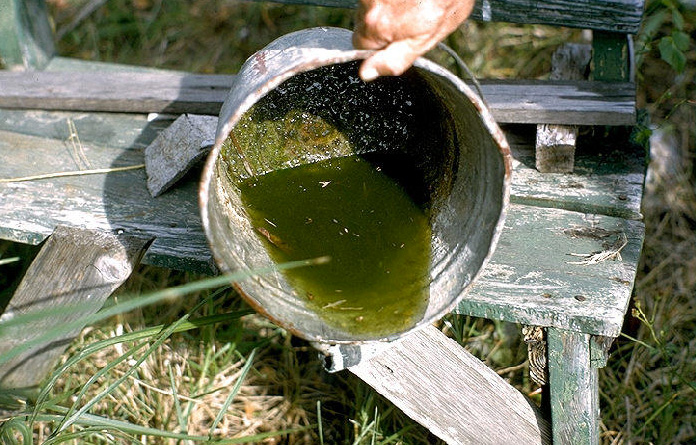Reduce Mosquito Breeding Sites
Friday, May 6th, 2016
Dump out standing and stagnant water around the outside of the home to limit breeding areas for all mosquitoes. Image courtesy of freshorganicgardening.com
This is Passport to Texas
Aedes aegypti is a mosquito known to carry the zika virus we’ve heard about in the news. It’s an introduced species found in the eastern half of Texas. But Mike Quinn says there’s no cause for alarm.
There’s no locally acquired cases in the [50] United States.
Quinn is an Austin entomologist who’s been following reports of the virus and its host species. This mosquito is different than most.
We mostly we think of large numbers of mosquitoes at dawn and dusk and through the night. But the Aedes aegypti is a day biting insect.
Aedes aegypti is a creature of the summer months, and most active May through August. One way to control it is to prevent it from breeding.
Controlling breeding sights on our property can be a very effective way to reduce the mosquito [population]. It’s what we call a container breeding mosquito. [It breeds] in pots and barrels, and toys and bottles. It can breed in a very small amount of water—a tablespoon or less, even. But it takes about a week under optimal conditions to go from egg to adult. So, doing a weekly cleanup of property, checking for water sources, changing out birdbath water on a weekly basis, is a good way to keep the population down locally.
Using products containing DEET on your person can be an effective deterrent. We have links to more information about the zika virus at passporttotexas.org.
For Texas Parks and Wildlife, I’m Cecilia Nasti.
____________________________________________
More information about the zika virus; copy and paste links into your browser.
http://www.cdc.gov/zika/prevention/
http://www.who.int/features/qa/zika/en/
http://www.fitfortravel.nhs.uk/advice/disease-prevention-advice/zika-virus-infection.aspx


 Passport to Texas is a
Passport to Texas is a  Passport to Texas is made available by:
Passport to Texas is made available by: